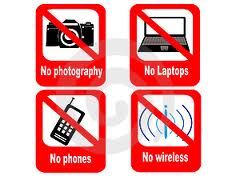by Scott McLeod
Dr. Scott McLeod is an Associate Professor in the Educational Administration program at Iowa State University. He is also the Director of CASTLE, Center of the Advanced Study of Technology Leadership in Education, which is why he is known as one of America’s leading academic experts on K-12 school technology leadership issues. Dr. McLeod regularly blogs at Dangerously Irrelevant and also at The Huffington Post about technology leadership. He has many accomplishments such as being the first untenured teacher to receive the Distinguished Teaching Award from the University of Minnesota College of Education, as well as the William J. Davis Award for best research article of the year in Educational Administration Quarterly.
Dr. McLeod posted Don’t Teach Your Kid’s This Stuff. Please? He uses sarcasm about teaching technology in the classroom to point out that teachers who avoid teaching their students about technology are really doing their students a disservice.
He tells them
don't teach your kids to write
online
pen and paper aren't going anywhere
since when do kids need an audience?
Dr. McLeod then points out their need to keep the children safe. He “reinforces” their “correct” reasons of why they shouldn’t teach technology such as cheating, sexting, and cyber-bullying and builds up to pornography and predators. As we all know, this is the only thing that children can get out of technology and we can’t trust them.
He ends by letting them know he is teaching his students about technology. Dr. McLeod uses an “I double-dog dare you not to” attitude as he lets his technology opposing colleagues know that in a decade or two it won’t be his students who are falling behind.
The iSchool Initiative
by Travis Allen
Take a look at the picture above. Is this a classroom? Is this how you would want to teach? Is this how you would want your children to be taught? A high school student from Georgia, Travis Allen, made a video promoting iSchool.
When the video started I thought it was a joke. How could you use a phone to get an education? Mr. Allen did his research. He shows how this phone has basic applications that are relevant in the classroom, but I am still wondering how students will take tests?
He also shows how there would be better communication with teachers and parents, which is important in so many ways. I do believe, however, that teachers and parents can still communicate by phone, emails, letters, and many other ways without having to use an iPhone.
Finally, he demonstrates how much money can be saved for the schools, which was over $600 per student. This is amazing. I am not by any means prepared to merge telephones into my own education, but kids seem to know more about them than I do already.
I understand that saving money is important for education. There are already too many budget cuts and it is important that we address that issue. I just don’t think that this is the right way. Not all families can afford for their child to have a cell phone, let alone an iPhone. Even if the school pays for the phone, who is going to pay for the monthly service? He said that this would cost about $150 a student, but the last time I checked iPhones start at $199 and there are still monthly payments for service.
Who is going to foot that bill? How much will this really save? Is this really worth it?
by Jonathon Reed
This video was amazing! I would say it is the best we have seen so far. The presentation was a bit of a shock. It started off so dark and depressing, but realistically very true. I couldn’t believe how it turned around and gave such a positive outlook on our generation.
It is true that unfortunately most people define success by how well they do at their job. This is why families are pushed to the side, so that we can get ahead in our own careers and in our separate lives. This video is meant to make people stop and think about what they are doing.
This video was extremely right. It really makes you sit back and put things into perspective. I literally almost cried as I watched the end of it. Sometimes we all need a reality check.
by Eric Whitacre
Jennifer Chamber posted this to her EDM310 blog. The link we had to her page said “I think I am a blogger” which was great in itself. I have never blogged before this class. This is a new lifestyle that I am actually enjoying. Finding videos like this on your own and being able to share them with your network is truly awesome.
I watched this video because someone who took the same class that I am now taking had mastered her blogging abilities and passed it on for future students to enjoy. I think that is so neat to be able to give people so much information even before having the chance to meet them in person.
Saying it that way doesn’t seem like it is the best form of communication, but it is really a different form of communication. None of the people in this video met each other or practiced with each other. They all did this on their own over the internet. I am so glad I witnessed such a beautiful thing thanks to a former student of a mutual class.
by Kevin Roberts
What does to teach mean in the 21st century? It means we do not need to just be teaching facts and content. We need to teach skills. What kind of skills? We need to teach many skills such as how to synthesize information, how to communicate that information, and how to problem solve the information at hand.
How do we teach these skills? The video suggests rethinking the tools we use and the types of questions we ask our students. I completely agree. Simply asking questions that require an a,b,c, or d response is not enough. Why don’t we try asking questions, not so much for the right answers but for why that is the right answer?
Mr. Roberts was right that students do not need to be entertained; rather they need to be engaged. Students are only engaged in the material when they are being challenged. I will always stand by what I believe and I believe that without a challenge, nothing is learned.
Therefore, let’s go out there and promote thinking! We have to face it, simply producing the correct answer is not enough to be considered educating.





Jessica this is a very thorough blog post. I vo agree with you for the most part on Dr. McLeod's take on teaching technology to students, to better prepare them for the future. But, Dr. McLeod just glosses over the very real dangers of children using the internet. I feel that if he parents take an active role in their children's use of the computer then this problem would be solved. Unfortunately, not all parents are willing to make that commitment.
ReplyDeleteThe ischool initiative is something that I think is a very good idea working toward the future of education in this country. The only problem I can see is that this country is slow to make changes in regards to the education of our youth. Also, the funding for the start-up of such a project is something that will be hard to get from the federal government, it would have to be started with some sort of corporate sponsorship.
The "Lost Generation" video is an amazing piece of work. It was well scripted and made you really think about what is important in your life. I truly loved this video.
The Virtual Chorus video was really a neat way to get people to come together in the world. If they can come together to create a beautiful chorus, just imagine the things that can be accomplished to make this world a better place.
I thought this video was a real issue that is having to be addressed by educators in the real world every day, we must find a way to get to our students and have them think for themselves, to find the answer for the themselves, and to make them become more active in the education that will change their lives. They won't learn if teachers just give them the answers.